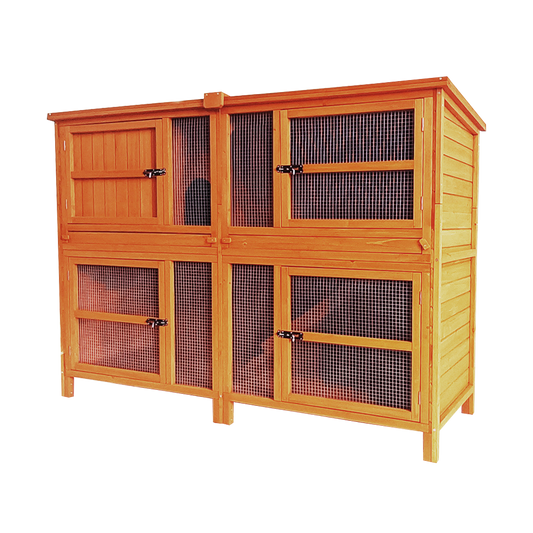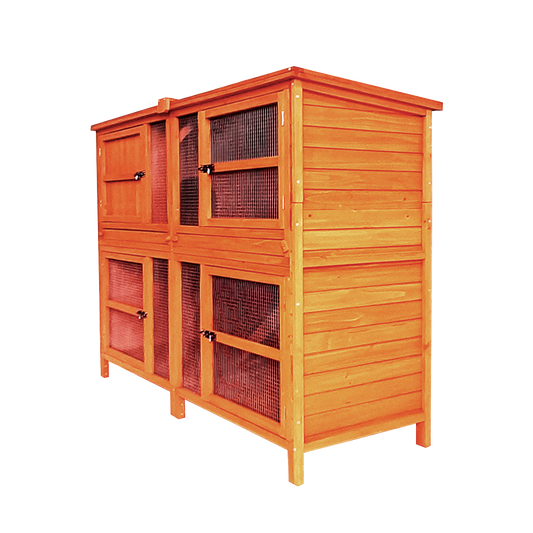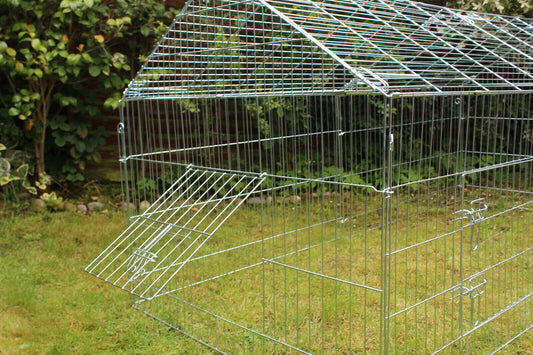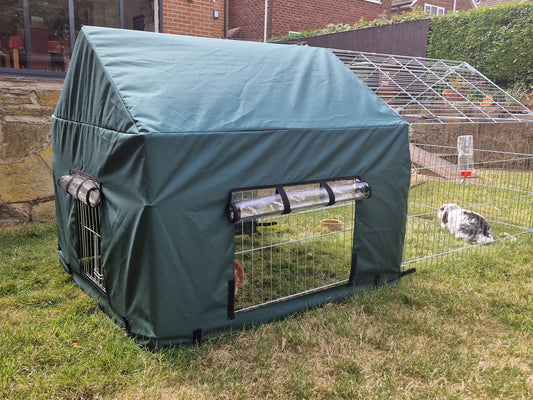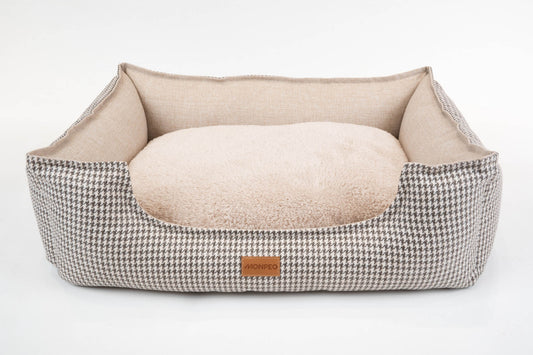Hamsters are adorable pets and can be very entertaining to watch. There are different types of hamsters with the largest being the Syrian (sometimes known as the golden hamster), dwarf Chinese, dwarf Roborovski and the Russian hamster. They are nocturnal animals so they may not be an ideal pet if you’re looking for something that you can get out and handle a lot during daylight hours as they will sleep the majority of the day but come alive in the evening. They can also become very tame and friendly once they know and trust you, especially the larger Syrian hamsters.

Type of cage
These days many places sell hamster cages that are far too small for even a tiny dwarf hamster and don’t offer enough space for them to explore and behave naturally which can result in behaviour problems such as cage gnawing in an attempt to escape. Syrian hamsters in particular need plenty of actual floor space so hamster cages with lots of tubes and tunnels may look interesting, but usually aren’t suitable for Syrians. A spacious hamster cage with lot’s of floor space and multiple levels is ideal. Dwarf hamsters like to hide more than Syrians so a hamster cage with tubes would be more suitable.
The hamster cage itself should be placed in a dry, draught-free area of your home away from direct sunlight. Hamsters are also sensitive to high frequency sounds which we cannot hear so do not place their home close to the television, computers, radios etc.

Bedding
Choosing appropriate hamster bedding to line the floor of the cage will differ from the bedding needed for their nest/bedding area. Line the floor of the cage with pet-safe wood shavings or special small animal paper-based litter. These types of hamster bedding help to reduce odours and make cleaning soiled areas much easier for you. The hamster’s nest or bedding area where they will sleep throughout most of the day should contain soft hamster bedding specifically made for hamsters. Check the corner in which your hamster uses as their toilet on a daily basis and spot clean if necessary but clean the cage out thoroughly once a week. This is important as it will prevent unwanted smells, keep your hamster healthy (preventing illnesses which can develop as a result of sleeping and living in a dirty cage) and you can also remove any old, leftover hamster food that your hamster has stored.

Toys and treats
To bond with your hamster you need to show him that you are nothing to be afraid of and that you offer all the good stuff like hamster treats, hamster toys and play-time. Over-grooming can also be a result of boredom so as well as giving him plenty of space, he will also appreciate hamster-safe toys to chew on and an adequately sized exercise wheel for him to run off any excess energy. Purchasing a hamster ball or a small run for your pet is also a great idea for exercise out of the cage but ensure you supervise him at all times and limit time in the ball to 15 minutes per interval.
Treats are perfect for bonding so offer him a small amount each day by hand-feeding them and hiding a few around the cage to keep him occupied. There are a lot of hamster treats available but the more natural based ones are best as they contain seeds and herbs which are much healthier for your pet, but be sure that you don’t over-feed.

Handling
When your hamster first arrives, he may be nervous which can result in nipping. When he arrives at your home give him a couple of days to settle into his new home and get used to his surroundings. To begin building his trust rub your hands in the wood shavings from his cage so that his scent is now on your hands and then offer him a treat. Once he is accepting treats out of your hand you can slowly place your hand underneath his body and gently cup him in your hand so he feels secure and can’t jump down, injuring himself. Some hamsters take only a matter of days to become tame but others may take longer so take your time, speak softly and don’t panic.

Feeding
Hamster food is readily available and is either muesli or pellet based. These provide all the nutrition that your hamster needs to stay happy and healthy so additional supplements are not usually required. You will also need a water bottle for your hamster which you attach to the cage bars. Hamsters are desert animals so they don’t actually drink much but you still always provide 24/7 access to fresh drinking water.

Companionship
Syrian hamsters can only ever live alone so must never be bought in pairs or groups as they will fight once they’re older. Dwarf hamsters can usually live in same-sex pairs or small groups if they’re from the same litter but keep in mind that they may end up squabbling too, so be prepared to separate and house them individually if necessary. The more cage space, feeding stations and bedding areas you give them, the more likely they are to get along and not squabble. Human interaction is very important if your hamster lives alone so forming a bond and offering outside-the-cage playtime on a regular basis will ensure your hamster gets the attention he needs.

Read more about small animals:


